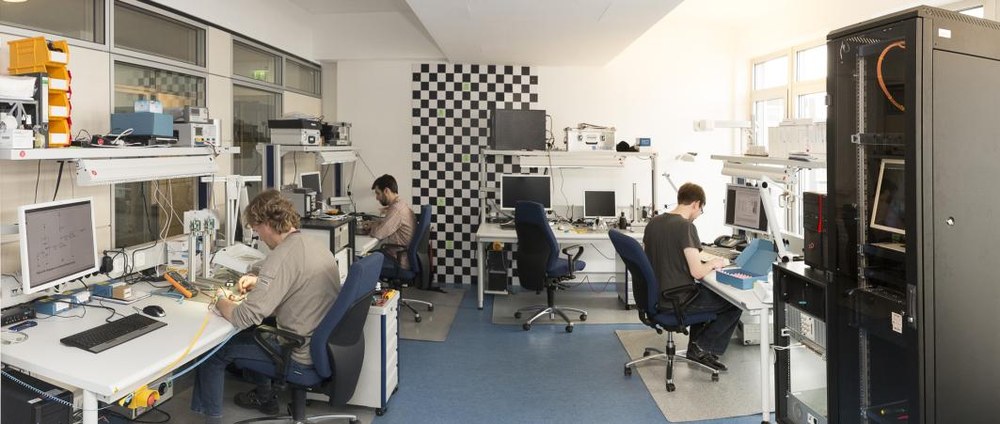HiLT – Hardware-in-the-Loop-Technology Laboratory

The Hardware-in-the-Loop Technology Laboratory (“HiLT Lab”) serves as a development laboratory for Guidance, Navigation and Control (GNC) systems for space applications. As part of the Department of Guidance, Navigation and Control Systems at the DLR Institute of Space Systems, it offers a broad spectrum of infrastructure for all aspects of the development of GNC systems, starting with the initial design of systems and components up to the preparation for their integration into flight systems. The lab is focused on the development, simulation, test, and verification of the embedded systems required for GNC applications. To this end, it is necessary to combine processors, sensors, actuators, and supporting electronic components into one real-time system. Using different simulation platforms and sensor stimulators, the lab offers the possibility of integrating real GNC hardware into so-called Hardware-in-the-Loop simulations (HiL simulations), which can be used to test individual hardware components and their interactions with software modules.
A data network connects the HiLT Lab with other local facilities for testing and verification of inertial sensors, optical sensors for exploration missions (TRON Laboratory), attitude control systems for satellites (FACE Laboratory) as well as algorithms for formation flying of multiple spacecraft (TEAMS Laboratory). Aside from simply connecting network-enabled devices in these labs, the network also facilitates distributed real-time simulations of complex GNC systems. By connecting the dSPACE real-time simulation platforms in each lab with dedicated optical fiber cables, it is possible to run distributed and synchronized HiL simulations across multiple labs. The HiLT Lab acts as a central node that is used to control and monitor the distributed simulations.
Currently, the HiLT Lab features a dSPACE real-time simulation platform, a Spirent GPS/SBAS simulator, a Jena Optronik optical sky simulator, a RASTA development platform for LEON2-based space avionics, TTEthernet development hardware as well as a high-performance computer. Additionally, the lab offers a small climate test chamber for the characterization of the temperature-dependent behavior of individual sensors or electronic components.
